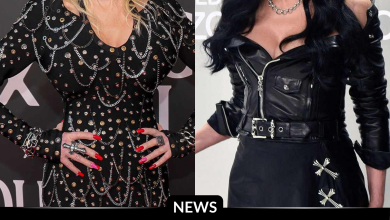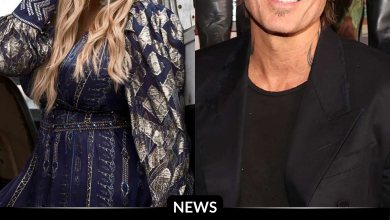The One Scene Harrison Ford Filmed With Dysentery—And 8 Other Struggles Only His Most Devoted Fans Talk About
OPINION: This article may contain commentary which reflects the author's opinion.
Harrison Ford, the legendary actor whose rugged charm and understated intensity have defined some of cinema’s most enduring heroes, stands as a paragon of authenticity in an industry often shrouded in artifice. From his breakout role as the roguish Han Solo in Star Wars (1977) to his whip-cracking adventures as Indiana Jones, Ford has captivated audiences for nearly five decades with performances that blend wit, vulnerability, and grit.
But for Ford’s most devoted fans, admiration comes with unique challenges. Defending his gruff interview style, enduring franchise disappointments, and cherishing fleeting moments of warmth require a loyalty that goes beyond casual stardom. In those struggles, however, lies the deeper reward: recognizing Ford’s nobility—his humility, resilience, dedication to craft over celebrity, and quiet gratitude for those who support him.
Humility That Baffles Outsiders
Ford’s humility is legendary, though often misunderstood. To outsiders, his guarded, sometimes brusque demeanor in interviews can be mistaken for arrogance. But to fans, it’s the mark of a man uninterested in Hollywood’s circus. “I just like making movies,” he has implied in countless exchanges, brushing off the glamour that others chase.
That honesty sometimes borders on bluntness. When asked why he reprised Han Solo in The Force Awakens (2015), he famously admitted it was “for the money.” While critics rolled their eyes, fans saw refreshing candor in a world of PR polish.
Moments of genuine warmth do shine through. At the 2024 Critics’ Choice Awards, Ford gave a brief, emotional thanks before quickly stepping aside, moved by the crowd’s ovation. It was a reminder that, for all his reticence, Ford values the audience deeply. As he once described them, fans are “customers”—a pragmatic view that reflects both respect and humility. For devotees, the struggle lies in explaining this pragmatism to skeptics. But they know it’s exactly what makes him authentic.
Resilience Forged in Adversity
If Ford’s humility defines him off-screen, resilience defines him both on and off it. Fans have watched him endure trials that mirror the grit of his characters. In 2015, his crash-landing of a vintage plane left him with serious injuries and partial facial paralysis—a detail some cruelly mocked online. Other aviation mishaps, including a 2020 runway incident, became headlines. Yet Ford, a lifelong pilot, never wavered. He returned to the cockpit, embodying the same daring spirit that propelled Indiana Jones across deserts and jungles.
Perhaps the most famous example of his resilience came during the filming of Raiders of the Lost Ark (1981). Stricken with dysentery, Ford proposed scrapping a choreographed sword fight for a quick, improvised solution—he simply pulled out his gun and shot the villain. The unscripted choice became one of cinema’s most iconic moments, proof of his practical brilliance even under duress.
Fans, however, have also endured the heartbreak of seeing Ford’s characters mishandled. The abrupt death of Han Solo, the uneven reception of Indiana Jones and the Kingdom of the Crystal Skull (2008), and divisive reactions to Dial of Destiny (2023) left many feeling franchises had failed to honor his legacy. Yet, when Ford grew visibly emotional at the Cannes premiere of Dial of Destiny, thanking fans for embracing his final bow as Indy, they saw resilience not just in survival, but in his ability to reflect on mortality and still express gratitude.
Dedication to Craft Over Celebrity
Ford’s nobility shines brightest in his dedication to craft. Unlike many action stars, he plays each moment with emotional nuance—delight, frustration, fear—never phoning in a performance. Whether in the dystopian melancholy of Blade Runner (1982) or the relentless chase of The Fugitive (1993), Ford’s commitment elevates genre films into art.
His roots in carpentry before fame also shaped his grounded approach. Acting, for him, was never about becoming larger than life—it was about doing the work well. Fans often joke about the perennial debate of who would win in a fight: Han Solo or Indiana Jones. But beneath the humor is recognition of Ford’s ability to breathe humanity into both, making them cultural archetypes.
Even in recent roles, like Apple TV+’s Shrinking (2023–present), Ford’s commitment to craft endures. Fans delight in the subtle warmth he shows during press for the show, rare glimpses of a man who would rather let his work speak for itself. The struggle, of course, is that such glimpses are fleeting. Yet, for his loyal following, that scarcity makes them all the more meaningful.
A Noble Legacy
For casual moviegoers, Harrison Ford may be remembered as the scruffy-looking smuggler or the fedora-wearing archaeologist. But for his devoted fans, he is something more profound: a man who embodies humility in the face of fame, resilience in the face of adversity, and integrity in a business that often rewards the opposite.
Yes, it can be a challenge to defend his reticence or to endure the uneven handling of beloved characters. But those struggles deepen the bond between Ford and his fans. They know his honesty, however sharp, is real. They know his resilience is hard-earned. And they know his dedication to craft, not celebrity, is what made him a legend.
In the end, Ford’s fans embrace the difficulties because they mirror the qualities of the man himself—tough, uncompromising, authentic. To love Harrison Ford is to accept the struggles, because they are part of what makes his legacy so enduring.
Would you like me to lean into a more fan-essay style (personal, conversational, like a piece in The Ringer) or keep it as a classic feature profile (structured, balanced, magazine-style)?



